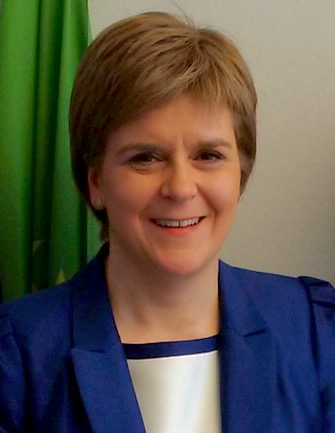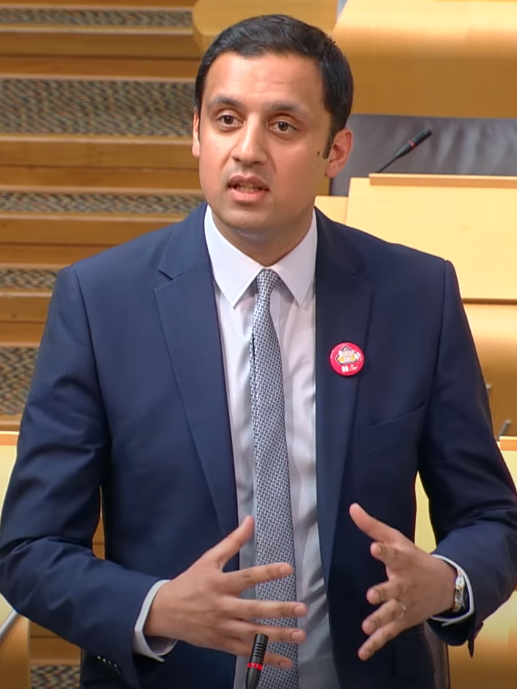
Scottish Parliament Elections 2021: Everything you need to know
The deadline to register to vote is 19th April
On Thursday 6th May, there will be an election to decide who is elected to the Scottish Parliament for the next five years.
This is a very important election as the Scottish Parliament has a wide range of devolved powers on issues that affect your day-to-day life. These include the NHS, education (including unis), the environment, taxes, the pandemic response and much much more.
So, your vote matters in deciding which 129 people become Members of the Scottish Parliament (MSPs) and, in turn, who forms the next Scottish Government.
If you’ve got questions about who’s standing, what they stand for, how to register to vote, and how to actually vote look no further. The Edinburgh Tab has got you covered so you can carry out your civic duty to vote.
Registering to vote
The deadline to register to vote is Monday 19th April and you can register to vote through this link.
In Scotland, you need to be 16+ to vote as well as either being a British or Irish Citizen, or a non-UK or Irish national who normally lives in Scotland. This means international students can vote so long as you have a Scottish address. When registering to vote, it will ask for a National Insurance number but you can still register without one – just follow the form and click “I can’t provide one” when it asks for it.
The deadline to register for a postal vote in Scotland was 6th April but you can still register for a proxy vote if you won’t be in the place you’d like to vote at. This involves nominating someone you trust (maybe a friend or family member) to vote on your behalf in person on polling day. You can register for a proxy vote here.
As a student, you can be registered to vote at both your term-time and home address. If both of these addresses are in Scotland, you can only vote at one – but you can choose which one. This could be which is more convenient, where you spend more time, or which constituency seat is more marginal. A marginal seat means a smaller change in vote shares is needed to affect the results.
If one address is in Scotland and the other address is in England or Wales, you can vote in both the Scottish Parliamentary elections on May 6th as well as the other elections happening that day. These include elections for the London Mayor, Welsh Parliament, and local councils. However, the deadline for a postal vote elsewhere is Tuesday 20th April and you can apply for one here. And if you miss that, you can still vote by proxy.
Voting
The Scottish Parliament is elected using form of voting called Alternative Member System (AMS). Don’t worry, its much less complicated than it sounds.
You essentially have two votes. The first is for a constituency MSP. You just put an X in the box of whichever candidate you’d like to represent you. There are 6 Scottish Parliamentary constituencies in Edinburgh and they are different to the constituencies used for general elections to Westminster. You can find your constituency and a list of candidates here.
The second is for a regional ‘team’ of MSPs. But rather than voting for a person, you vote for a party – again, just putting one X next to the party of your choice. Each region elects 7 MSPs and they ‘top up’ the results from the constituency MSPs to make it more proportional – ie a better reflection of how people actually voted. It also makes sure smaller parties that would struggle to win in constituencies are represented. If you’re a politics geek like me (or just have a thing for statistics), you can learn more about how it actually works here.
Who should I vote for?
There are five parties currently represented in the Scottish Parliament. In order of current number of MSPs, these are: the SNP, the Conservative and Unionist Party, the Labour Party, the Scottish Green Party, and the Liberal Democrats. The other significant party standing is the Alba Party, set up by former SNP First Minister Alex Salmond.
Broadly, Scottish politics has been defined by two big constitutional issues: Scottish Independence and Brexit. The SNP and Scottish Greens support independence but opposed Brexit, the Conservatives oppose independence but support Brexit, Alba supports both independence and Brexit, whilst Scottish Labour and the Lib Dems have opposed both.
That being said, Scottish Parliamentary elections are about so much more than this. There are a wide range of social, economic, and political issues being debated. You can check out each party’s manifesto to see what specific policies they support as well as the two leaders’ debates available on BBC IPlayer and STV catch-up.
What else do the parties stand for?
Here are the leaders and headline policies for each of the six major parties. You can also find info on the five smaller parties standing here.
SNP

Leader: Nicola Sturgeon (the current First Minister)
Headline policies:
• Hold a second referendum on Scottish independence
• Build 100,000 new homes by 2032, with at least 70 per cent of these being for social rent
• Launch a National Care Service
• Oppose nuclear weapons
• Provide ScotRail services within the public sector
Conservatives

Leader: Douglas Ross
Headline policies:
• Oppose another referendum on Scottish independence
• A school catch-up plan comprising a nationwide tutoring scheme and hiring 3,000 extra teachers
• A law guaranteeing the funding the Scottish government would have to pay to local authorities
Labour

Leader: Anas Sarwar
Headline policies:
• Guarantee a job for every young Scot
• Invest in the NHS to get cancer treatment back on track, improve mental health, and give carers the pay they deserve
• Develop a comeback plan for education which invests in and gives IT support to schools
• Invest in green jobs and seize Scotland’s hosting of COP26 to champion an ambitious climate justice plan
• Create a community recovery fund to invest in local areas
Scottish Greens

Co-leaders: Lorna Slater and Patrick Harvie
Headline policies:
• A fair and green recovery from the pandemic
• Tackle the climate emergency with direct investment in transport, warm homes and renewable energy
• Re-join the European Union as an independent country
Lib Dems

Leader: Willie Rennie
Headline policies:
• Put recovery first from the pandemic
• An education bounce back plan
• Train more mental health specialists for community centres, hospitals, workplaces and schools
• Tackle the climate emergency with a green jobs revolution
• Oppose a second independence referendum due to the pandemic
Alba

Leader: Alex Salmond
Headline policies:
• Scottish Independence as an immediate priority, achieved through a second referendum
• A social democratic programme and a written constitution after independence
—-
Again, the link to register to vote is here.
Related articles recommended by this writer:
• Students accuse Edinburgh lecturer of spouting ‘racist and sexist’ comments
• Edi Uni VP tells students to stay away from The Meadows and Portobello
• Edinburgh Uni is offering free regular Covid tests to all students









































